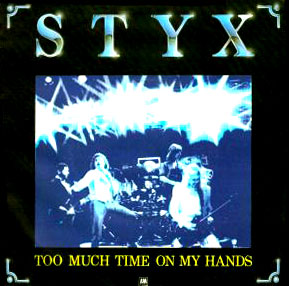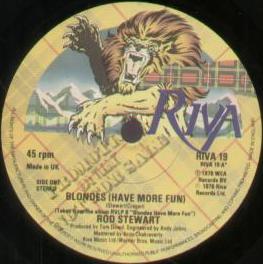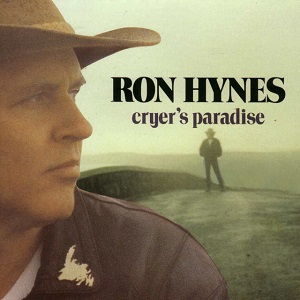
Styx is an American rock band formed in Chicago, Illinois, in 1972. They are known for blending melodic hard rock guitar with acoustic guitar, synthesizers mixed with acoustic piano, upbeat tracks with power ballads, and incorporating elements of international musical theatre. The band established themselves with a progressive rock sound during the 1970s, and began to incorporate pop rock and soft rock elements in the 1980s.

Cornerstone is the ninth studio album by the American rock band Styx, released in 1979. Styx's third straight multi-platinum selling album, Cornerstone was Styx's first album to earn a Grammy nomination, which was for Best Rock Performance by a Duo or Group. Like the four previous Styx albums, the band produced the album themselves. Styx recorded the album at Pumpkin Studios in Oak Lawn, Illinois.

Paradise Theatre is the tenth studio album by American rock band Styx, released on January 16, 1981, by A&M Records. It was the band's most commercially successful album, peaking at #1 for 3 weeks on the Billboard 200 in April and May 1981 (non-consecutively). It was also the band's fourth consecutive album to be certified triple-platinum by the RIAA.

"Babe" is a song by the American rock band Styx. It was the lead single from the band's 1979 triple-platinum album Cornerstone. The song was Styx's first, and only, US number-one single, spending two weeks at No. 1 in December 1979, serving as the penultimate number-one single of the 1970s. "Babe" also went to No. 9 on the Adult Contemporary chart. It additionally held the number-one spot for six weeks on the Canadian RPM national singles chart, charting in December 1979 and becoming the opening chart-topper of the 1980s. It was also the band's only UK Top 40 hit, peaking at No. 6. It also reached No. 1 in South Africa.

"Don't Let It End" is the third track and the second top 10 single on the 1983 album Kilroy Was Here, by Styx.
"Snowblind" is a song by Styx that appears on the Paradise Theatre album released in 1981. The song is about the helplessness of cocaine addiction, alternating between slow, brooding verses and a faster, harder-edged chorus, representing the addict's cycle of highs and lows.

"Blue Collar Man (Long Nights)" is a song by American rock band Styx, released as the first single from their eighth studio album, Pieces of Eight (1978). Released in 1978, the single came in two 7" vinyl formats: one with the b-side "Superstars" (a track from The Grand Illusion) and a second single with the instrumental album track "Aku-Aku" as the b-side. Some printings of the single were also issued in a translucent blue vinyl, which are now highly sought after collectors items.

"Why Me" is a song written by Dennis DeYoung that was first released on Styx's 1979 double-platinum album Cornerstone. It was also released as the second single from the album, and reached #26 on the Billboard Hot 100 and #10 on the Canada RPM Top 100 Singles chart.

"Borrowed Time" is a song written by Dennis DeYoung and Tommy Shaw that was first released on Styx's 1979 album Cornerstone and was also released as the third single from Cornerstone. It peaked at No. 64 on the U.S. chart in April 1980.

"The Best of Times" is a song by American rock band Styx, released as the first single from their tenth album Paradise Theatre. It reached No. 1 in Canada on the RPM national singles chart, their second chart-topper in that country, and No. 3 on the US Billboard Hot 100 for four weeks in March and April 1981. In the UK, the song peaked at No. 42 on the UK Singles Chart.

"Too Much Time on My Hands" is a song by American rock band Styx, released as the second single from their tenth album Paradise Theatre. It was written and sung by Tommy Shaw, who also plays the lead guitar solo during the break in the song. It was Shaw's only top 10 single as a writer and vocalist with Styx.
"A.D. 1928 / Rockin' the Paradise" is a song by American rock band Styx, released as the fourth single from their tenth album Paradise Theatre. The song peaked at No. 8 on the Billboard Rock Chart. "A.D. 1928" is a short, piano-based song by Dennis DeYoung, set to the same melody as "The Best of Times", that segues into "Rockin' the Paradise". These two tracks would serve as the opening songs of not only the Paradise Theatre album but also its subsequent tour and the 1996 Return to Paradise reunion tour.

Single White Female is the fourth studio album by American country music artist Chely Wright. The album was released on May 18, 1999, on MCA Nashville Records and was produced by Tony Brown, Buddy Cannon, and Norro Wilson. Single White Female became Wright's most successful album, receiving an RIAA certification and spawning two major hit singles. The album received mainly positive reviews from critics, many of which praised the blending of its musical differentiation.

"Boat on the River" is a 1979 song by Styx, from their album Cornerstone. It was released as a single in 1980 in various countries, but not in the band's native United States, where "Borrowed Time" was released instead.

"Gimme Some Slack" is a song by the American rock band the Cars from the album Panorama. The song was written by bandleader Ric Ocasek.

"Blondes (Have More Fun)" is a song written by Rod Stewart and Jim Cregan that was originally released as the title track of Stewart's 1978 album Blondes Have More Fun. In some countries it was released as the third single off the album, following "Da Ya Think I'm Sexy?" and "Ain't Love a Bitch". It only reached the Top 70 in the UK, topping out at #63 but reached #23 in Ireland. The song was covered by Vince Neil on the Japanese version of his album Exposed.

"Dependin' on You" is a song written by Michael McDonald and Patrick Simmons that was first released by the Doobie Brothers on their 1978 album Minute by Minute. It was also released as the third single from the album. It has subsequently been released on live and compilation albums.
"The W.S. Walcott Medicine Show" is a song written by Robbie Robertson that was first released on the Band's 1970 album Stage Fright. It was also frequently performed in the group's live sets and appeared on several of their live albums. Based on Levon Helm's memories of minstrel and medicine shows in Arkansas, the song has been interpreted as an allegory on the music business. Garth Hudson received particular praise for his tenor saxophone playing on the song.
"The Grand Illusion" is a song written by Dennis DeYoung that was released as the title track of Styx's 1977 album The Grand Illusion. Not only is it the title track, but it provides the theme of the entire album. Although not released as a commercial single, it received significant radio airplay.

Cryer's Paradise is the second studio album by Canadian folk singer-songwriter Ron Hynes, released by Atlantica Music in 1993.
















